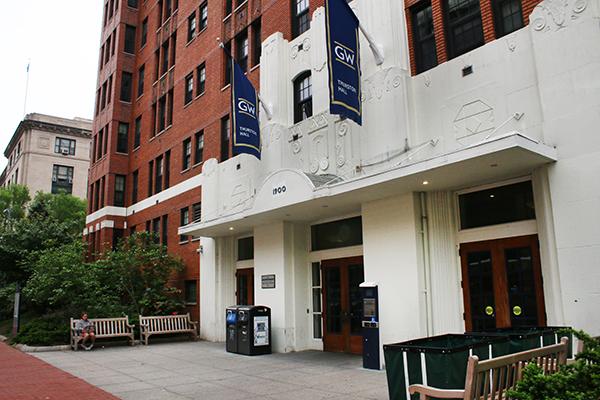The University plans to renovate every residence hall on campus in seven-year intervals, with the first three buildings readying for upgrades this summer.
But when it comes to Thurston Hall, the largest freshman hall on campus, student life administrators are concerned that GW doesn’t have the space to let so many rooms go offline.
Dean of Student Affairs Peter Konwerski said officials are puzzled over where GW would, for example, house the thousands of students who visit campus for Colonial Inauguration. The building accommodates half of each year’s freshman class and about one-seventh of all students each year.
“We’re not actually sure what we’re going to do about Thurston,” he said.
The University could work on the hall in phases, but Konwerski stressed that administrators still haven’t come to a final decision.
The last overhaul to the 85-year-old hall came in 2007, when the University spent $13.8 million to improve its deteriorating brick facade. The renovations also added security cameras, installed sprinklers in each room and replaced carpeting and elevators.
The Washington Post once called Thurston Hall a zoo, and students have complained about exposed pipes, fungus and a lack of privacy. Others have lauded the 1,100-student community as the quintessential freshman experience.
The University has invested $4 million in upgrading halls like Munson in previous years, but this year’s $4 million will cover the costs to renovate three buildings: The Dakota, International House and City Hall.
Sophomore halls JBKO, Francis Scott Key and Guthridge are next in line for renovations, along with Strong Hall, Mitchell Hall and Ivory Tower, which the University renamed Shenkman Hall on Friday.
GW Housing Programs Director Seth Weinshel said conversations about Thurston’s future will be fleshed out in the next year as they prepare for renovations. He declined to say what kind of upgrades the University is considering.
Students at University of Michigan and Pennsylvania State University were displaced when large first-year dorms underwent construction, forcing hundreds to live off campus.
Residence Hall Association president Ari Massefski said housing updates are still a work in progress, and administrators have asked for student input.
“I think everybody recognizes certain challenges that come with it, but they’ve always been open about the fact they want to do what’s best and they’ll find a way to do it,” Massefski said.
Though administrators are still determining plans for Thurston in the long term, Massefski has already looked into smaller-scale changes. He wants to reopen a study room in the basement, which was temporarily used as a facilities office.








